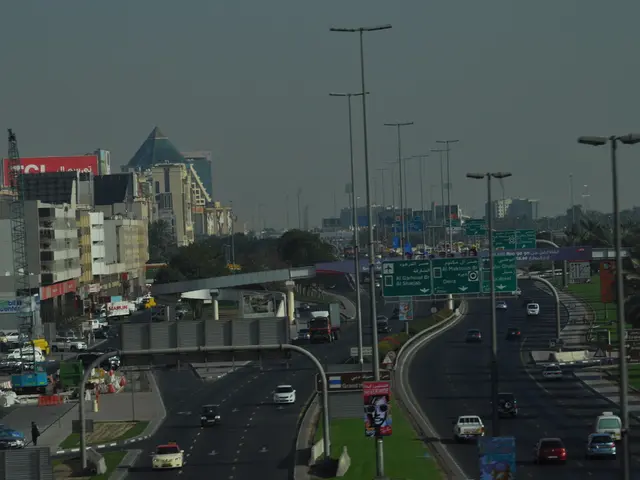Alleged False Identity: Massive Number of Foreigners Reside in Switzerland Using Counterfeit Passports
Taking a Deep Dive into the Counterfeit Passport Crisis in Switzerland
A bombshell investigation by SRF uncovers a chilling reality: thousands of foreigners are living in Switzerland unlawfully, thanks to fake European passports. Criminal syndicates, believed to have their roots in Turkey, forge and peddle these bogus EU passports, largely undetected by Swiss border controls due to the country's Schengen area status.
In 2024, over 3,700 forged documents were confiscated by Swiss authorities, reflecting an 8% increase from the previous year. However, this number is merely the tip of the iceberg as most of these documents cruise under the radar.
Deeper into the Depths
With passport checks at Swiss borders being sporadic and random, foreigners carrying forged documents slip into the country unnoticed. According to Alexander Ott, a spokesperson for Bern's immigration authority, up to 10% of Swiss residence permits could potentially be procured through fraudulent means, based on the number of arrests and seized forgeries. This estimate aligns with the observations of Simon Baechler, head of the Neuchâtel Criminal Investigation Department, who notes that the detection of fake passports is unsettlingly common during investigations.
What Actions are Swiss Authorities Taking to Stem the Tide?
Given the ever-evolving techniques of forgery, authorities must focus on enhancing their capabilities to detect counterfeited passports and ID cards. To achieve this, border guards and municipal employees are being trained to recognize the telltale signs that set apart real passports from their forged counterparts. Smith emphasizes that many of these individuals lack knowledge about the security features inherent in genuine passports, highlighting the importance of such training, particularly in smaller communities with limited resources.
Swiss customs and police forces persistently work to root out these forged documents, embodying active enforcement at borders. With advancements in forgery technology, Swiss authorities may need to adopt more sophisticated verification processes in the future, such as moving beyond visual checks to incorporate chip validation in electronic identity documents (eIDs).
Lastly, international cooperation remains vital in combating the issue of fake passports. Cross-border collaboration in sharing intelligence on counterfeit document sources and trends will help Switzerland remain vigilant against new and emerging threats.
In light of the rising number of counterfeit European passports being distributed by criminal syndicates, Swiss authorities added a focus on training border guards and municipal employees to recognize fraudulent passports in 2024. According to Alexander Ott from Bern's immigration authority, up to 10% of Swiss residence permits could have been obtained fraudulently, a concerning alignment with the frequent detection of fake passports during investigations by the Neuchâtel Criminal Investigation Department. As the crisis looms closer to the 2024 general news headlines related to crime and justice, international cooperation remains essential in sharing intelligence with other countries, allowing Switzerland to stay vigilant against new and emerging threats.







